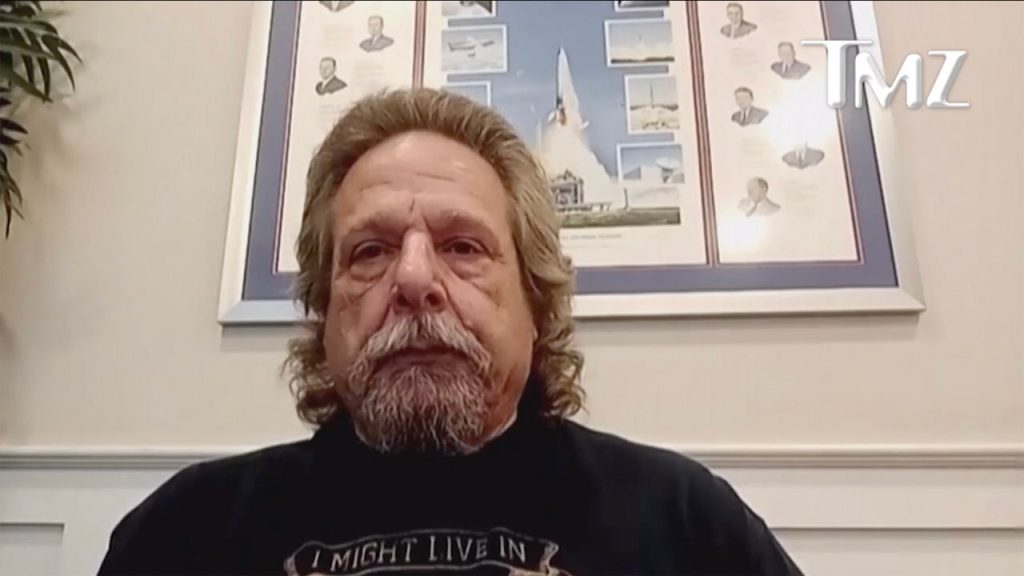Charleston investigators have released their findings in the death of Boeing whistleblower John Barnett, who was found dead in his truck in March after he failed to show up for his second day of depositions in a lawsuit against the aerospace manufacturer. Barnett was found with a gunshot wound to the head in the parking lot of his hotel, with a pistol in his hand and a suicide note on the passenger seat. The coroner’s report confirmed that all findings were consistent with a self-inflicted gunshot wound, ruling the cause of death as a gunshot wound and the manner as suicide. Additionally, police found no signs of unusual travel patterns or communication in his phone records and hotel surveillance video showed him leaving the hotel alone before the incident occurred.
Police reported that Barnett was locked inside his vehicle alone with the key fob when they discovered him, and records showed he legally purchased the handgun in 2000. His fingerprints were found on the notebook containing his suicide letter. Barnett had been suing Boeing, alleging retaliation, harassment, and surveillance by the company. His legal team did not immediately respond to the coroner’s findings, with one of his lawyers previously stating that he did not believe Boeing was involved in his client’s death, but found it puzzling that Barnett would take his own life. Barnett had worked for Boeing for over three decades as a quality-control engineer before retiring in 2017. In 2019, he raised concerns about safety compromises in Boeing’s production practices and, more recently, expressed worry about the hasty return of Boeing’s 737 Max 9 jets to service.
Boeing CEO Dave Calhoun’s announcement of his resignation by the end of the year, unrelated to Barnett’s lawsuit, adds a layer of complexity to the situation. Calhoun’s decision comes amid ongoing struggles for the company, raising questions about the internal dynamics and external pressures faced by Boeing. Barnett’s case highlights the challenges faced by whistleblowers in corporate environments, particularly in high-stakes industries like aerospace. The tragic outcome of Barnett’s whistleblowing efforts further underscores the need for comprehensive support and protection for those who speak out against corporate wrongdoing. The mysterious circumstances surrounding Barnett’s death and the conflicting opinions on its nature warrant a thorough investigation.
The revelation of Barnett’s death has sparked renewed interest in his case and the broader implications for Boeing and the aerospace industry. The circumstances leading up to Barnett’s demise raise questions about the pressures faced by whistleblowers and the potential risks they face in speaking out against powerful corporations. The conflicting views on the cause of Barnett’s death add a layer of complexity to the situation, highlighting the need for a thorough and impartial investigation. The ongoing struggles faced by Boeing, including the resignation of its CEO, further deepen the narrative surrounding Barnett’s case and the challenges faced by those who seek to hold corporations accountable for wrongdoing.
Barnett’s tragic end serves as a somber reminder of the risks involved in whistleblowing, particularly in industries where profit margins and reputations are at stake. The concerns he raised about safety compromises and rushed production practices highlight the ethical dilemmas faced by employees who witness wrongdoing within their organizations. The conflicting opinions on the cause of his death underscore the need for transparency and accountability in investigating such cases. As the investigation into Barnett’s death continues, the spotlight remains on Boeing and the aerospace industry, raising questions about corporate culture, ethics, and accountability.
In conclusion, the death of Boeing whistleblower John Barnett has brought attention to the challenges faced by whistleblowers and the complexities of corporate accountability. The conflicting views on the nature of his demise, coupled with ongoing struggles at Boeing, highlight the need for a comprehensive investigation into the circumstances surrounding his death. Barnett’s case serves as a poignant reminder of the risks involved in speaking out against corporate wrongdoing and the importance of supporting and protecting whistleblowers. As the investigation unfolds and new information emerges, the spotlight remains on Boeing, the aerospace industry, and the broader implications for corporate ethics and accountability.


